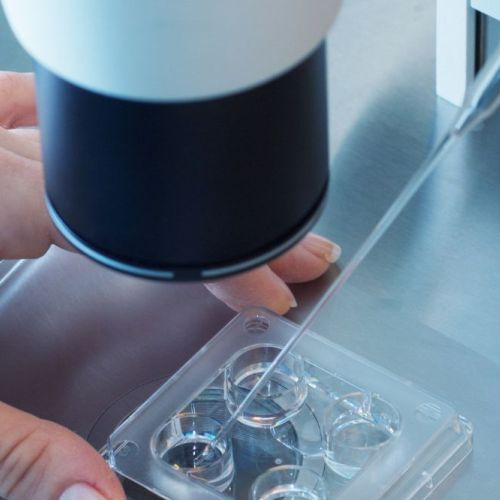IVF Vs. Artificial Insemination

When a couple is having trouble conceiving, there are several options for fertility treatments. For those who need fertility assistance, two of the most common options are in vitro fertilization (IVF) and artificial insemination.
If you’re considering fertility treatments, there are several factors to consider. The fertility experts at the Center for Reproductive Health can help you understand the differences between IVF vs. artificial insemination and what type of fertility treatment would work best for you.
How Does Artificial Insemination Work?
Women who have been unable to get pregnant after a year of trying may benefit from artificial insemination. In this procedure, sperm is inserted into the reproductive tract, usually directly into the uterus during ovulation. Since sperm are implanted directly into the uterus, they don’t have to swim as far to fertilize the egg. The sperm may be from the partner or a donor.
This is an in-office procedure that usually only takes about 10 minutes. If you have been unable to get pregnant because of issues such as endometriosis, cervical disorders or irregular periods, artificial insemination may be a good option for you.
Artificial insemination may also be recommended if your partner has immotile sperm or erectile dysfunction, and it may also be a good option for single women or same sex couples. It may be recommended as the first option to try if the cause of your infertility is unknown.
How Does IVF Work?
If three or four rounds of artificial insemination are unsuccessful, your doctor may recommend IVF, which is a form of assisted reproductive technology in which fertilization happens outside the body. Fertility drugs are used to stimulate the growth of multiple eggs. Once they are mature, the eggs are harvested in an outpatient procedure that’s done by using ultrasound guidance and light sedation.
The sperm and eggs are mixed together and allowed to grow in a lab setting for three to five days. Fertilized eggs are then implanted into the uterus. Embryos can also be frozen for future use. IVF may be recommended for women who have reduced ovarian reserves, ovulation disorders or blocked fallopian tubes.
How Does IVF Compare to Artificial Insemination?
Both IVF and artificial insemination typically include undergoing a regimen of fertility drugs to stimulate ovulation and improve success rates. Both procedures involve processing the sperm by washing it to separate sperm from seminal fluid and to isolate sperm of the highest quality from the sample.
Artificial insemination is a less invasive procedure than IVF and it’s also less costly. To determine what type of fertility treatment is best for you, your doctor considers a combination of factors such as your age, your family health history and any known health conditions you may have.
When pregnancy doesn’t happen as easily as you hoped, medical intervention may help. If you have any questions about artificial insemination, IVF or other options for treating infertility, don’t hesitate to get in touch with the compassionate and knowledgeable team at the Center for Reproductive Health.



